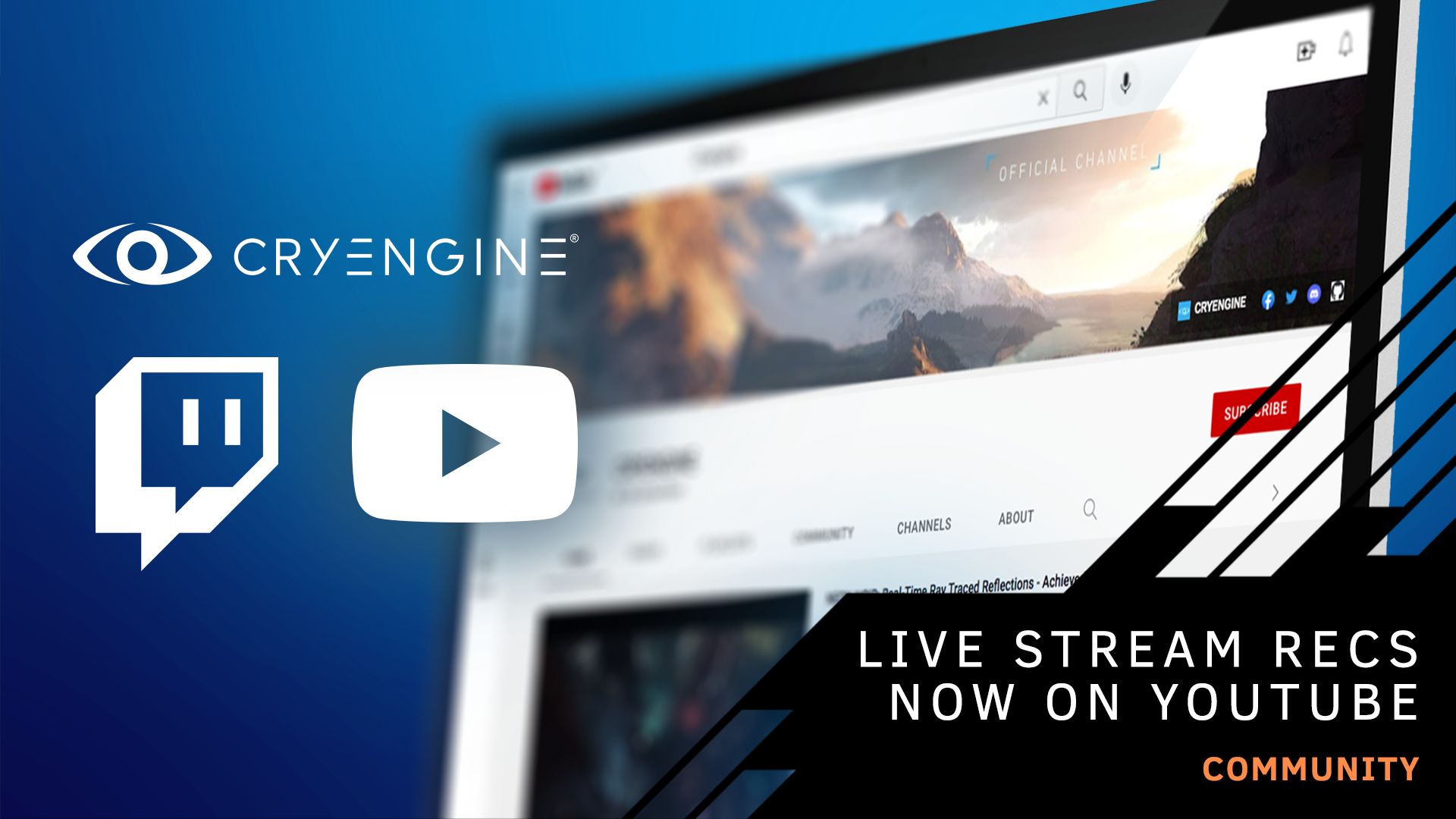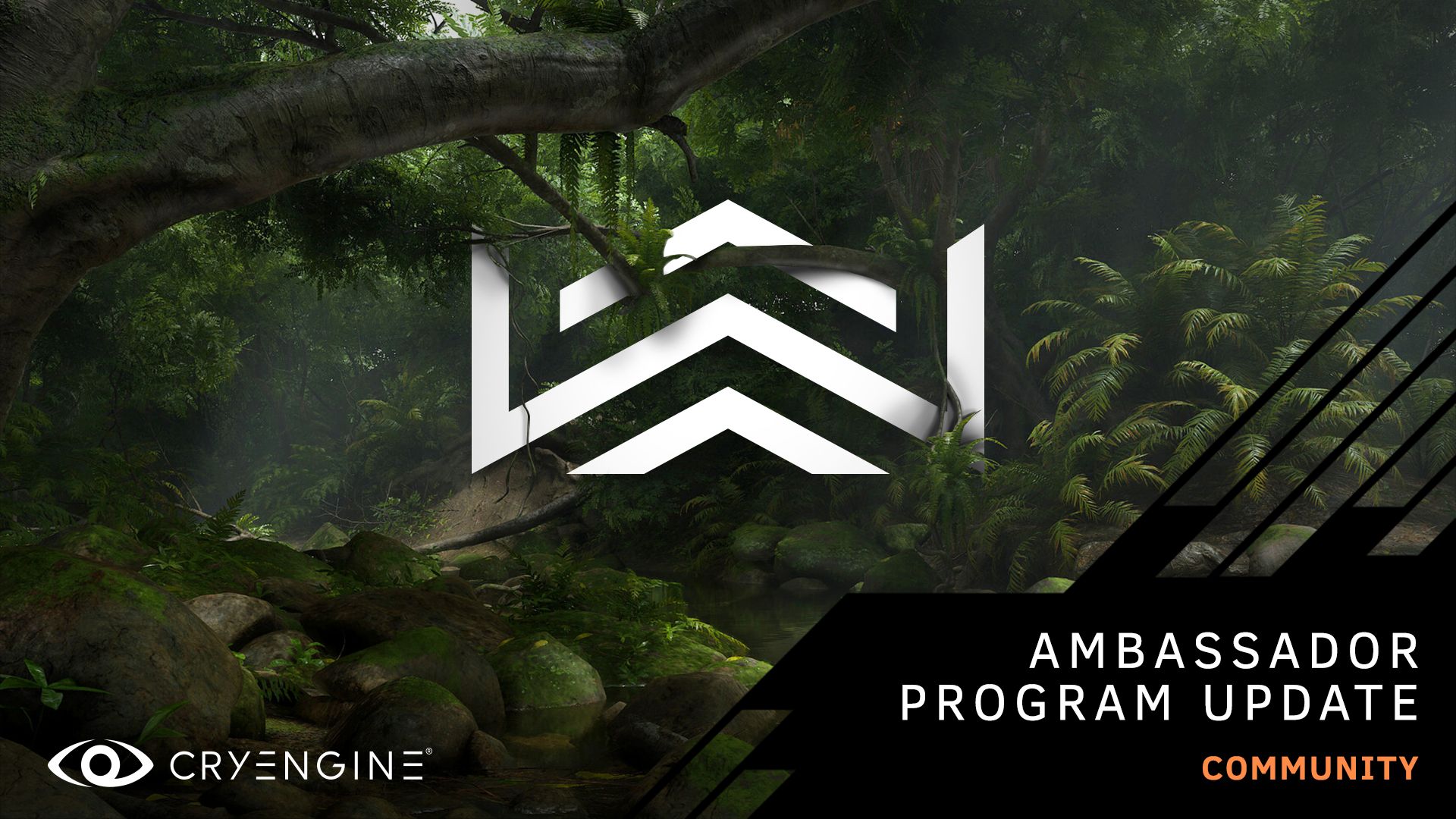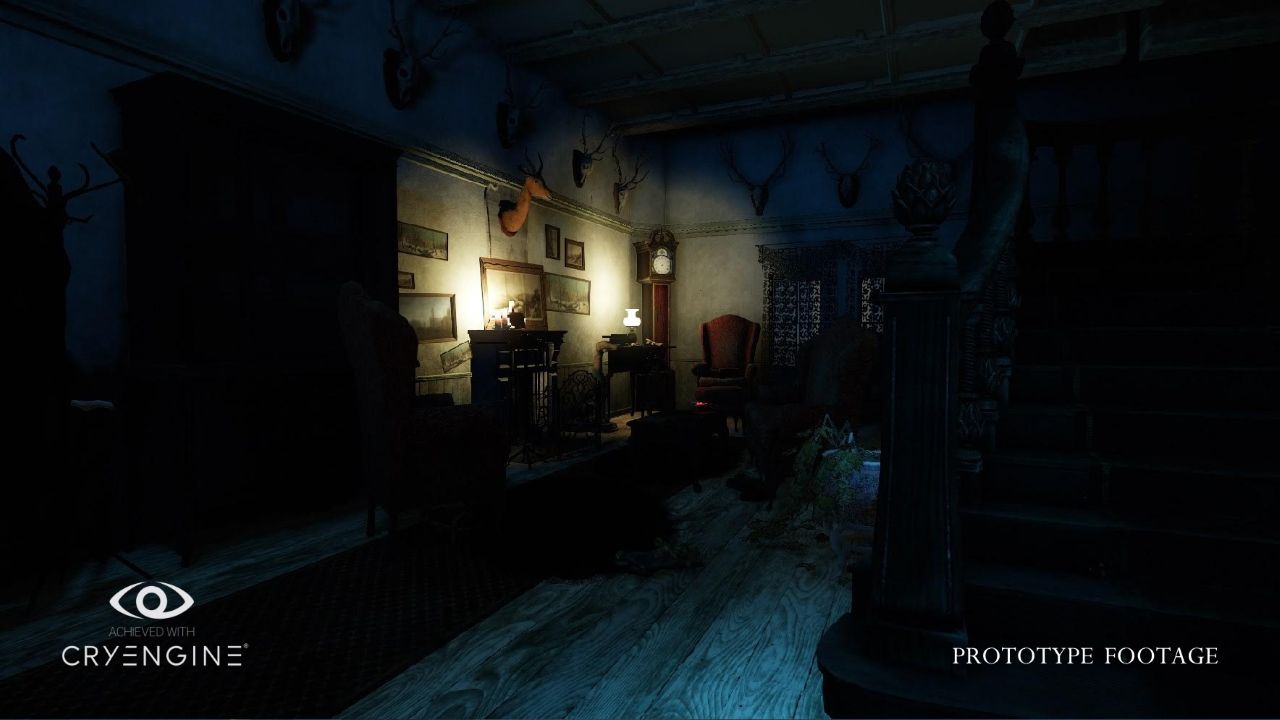
Indie Development Fund Spotlight - Ghost Theory
As you know, the CRYENGINE Indie Dev Fund is now open for submissions. Many of you may have applied for this fund, and we wish you the best of luck! So as part of our community spotlight, we will be bringing you features covering the talented developers contending for the Indie Dev Fund! This week we're bringing you Ghost Theory, a first person horror sandbox game from studio Dreadlocks LTD that's sure to put you on edge.
Thrust into the shoes of a newbie ghost hunter, you'll be visiting real-world haunted sites, interacting with spirits and demons alike with authentic ghost-hunting equipment in a dynamic environment where nothing is set and nearly anything is possible. Will you brave the dark reaches of the Suicide Forest? Or even the crumbling ruins of Poveglia island, where anything could be around the next corner? To find out more, we got in touch with Stefan Durmek, producer and game designer for Ghost Theory, and asked him just what we can look forward to in the release.
What can you tell us about the game Ghost Theory? What are the unique aspects of gameplay? Will the player be taking a strictly passive approach or will they be able to interact with these spirits?
We’d like to think of Ghost Theory as our chance to make something new – something really different.
The core gameplay mechanics behind the spirits in our game are similar to the mechanics used in the “Neighbours from Hell,” only more complex. You need to figure out the ghost’s routines – its patterns of action - and then work out a way to break them. As an easy-to-swallow example: say a ghost turns on a light in the kitchen, you might decide to lock the light switch with gum and then wait with a full spectrum camera for it to try the same action again. How it responds to the change in its physical environment – and if it turns on you – is going to tell you a lot about what a ghost actually is.
So – the player will be able to interact with ghosts, but always through its environment rather than directly. There's no shooting or fighting in the core concept of the game. Your goal will be to collect samples and evidence of paranormal phenomena and then bring it all back to the University, where you can direct your scientists to study it.
What are your long-term goals for Ghost Theory? Do you plan to release through Steam or other platforms?
Initially, we want to release the PC version on Steam and GOG, then release both digital and hard copy versions for consoles (PS4, XB1). Not forgetting MAC and Linux versions as well.
The game will support VR kits such as Oculus and HTC Vive, as well as other innovations like the Tobii EyeX Controller.
In the long-term - and I'm not even sure I should be announcing this ye - we’re looking for ways to use our game as a very real tool to connect the massive community of paranormal fans with actual ghost hunters. This social feature – with the working title “Ghost Club” - is not even through the concept stage yet, but it's something we're working on and really want to make happen some day.

Prepare to encounter spirits and demons in VR!
In your submission you referenced travelling to real-world haunted locations in-game. Care to elaborate on that? How did you select these locations?
Once we knew we were going to make an authentic ghost hunting experience, the choice to bring in real haunted sites was an obvious one - and before I'd even started to figure out if it were possible, my sister, who lives on the other side of Europe, called me to say that the most famous ghost hunting TV show in England was going to investigate a house in her small town. With her help, that same night I contacted the owner of the house. It became our first authorized haunted site for inclusion in the game: 30 East Drive, Pontefract – a damn scary place. I knew at that moment it was perfectly doable to use real haunted locations in the game.

Travel to real-world hauntings and encounter legendary spirits
Since then, we've already scanned a haunted castle here in the Czech Republic and we’re planning to visit some other haunted sites, but it all hinges on finances, of course. As it is, we won’t be able to travel to distant locations, so we’re calling on the large community of ghost hunters to help us with those.
There are a couple of factors that make each place more or less interesting for us. First is how popular the location is among ghost fans and ghost hunters (at least local ones). The second factor is the function and proportions of the location. Not every haunted site is suitable for our sandbox concept of game play. The third factor is the backstory and type of haunting – it needs to fit into the scope of our story for Ghost Theory; at least before DLCs. Then, there are of course safety considerations when choosing a place – for whatever reason, bad stuff does happen during visits and we can't afford to have staff disappearing or suffering 'accidents'. Lastly, we're interested in haunted sites the world over, but there are reasons for our selecting sites in countries with a strong base of video game players.
Similarly, you mentioned using real world ghost hunting equipment such as EMF meters. Will all equipment in the game be functionally accurate? How did you source information regarding the operation of these instruments?
All features and game mechanics that relate to parapsychology or paranormal investigations are a product of extensive research. From story to gadgets - authenticity is a must.

Expect to use real-word paranormal investigation tools in Ghost Theory!
In terms of sources for this research, it varies – specialist sites, investigation reports, books, video captures, expert advisors. Weirdly, or perhaps not, it's also starting to come from our own experience. We've already bought and tested an EMF meter ourselves – it's important we understand exactly how it responds to specific 'events' if it's going to feel authentic in the game.
We are also taking a small step into fiction in coming up with a few yet-to-be-invented hi-tech gadgets which your scientists will build for the player in the later stages of the game; this way you can dig deeper than today’s gadgets allow.
Would you care to elaborate more on the psychological horror aspect of the game? From the sound of it, there won't be very many jumpscares? How do you keep the tension going?
Well, really, I think jumpscares have become a bit cliché in first person horror games. I'm not saying they don't have their uses if well done - they can definitely be entertaining for some - I just think far too many first person horror games are built on jumpscares and little else. It wouldn’t make any sense for us to make another of these.
So we’re taking a different approach to horror in Ghost Theory. We want the experience to feel authentic from the perspective of a ghost hunter – and, trust me, they get scared. What this means is it's just not believable to have ghosts attacking you the moment you set foot in a haunted location. Real paranormal investigators can spend a whole night trying to goad a ghost into appearing, often with only minimal results. But, then, Ghost Theory is an adventure game, not a ghost hunting simulator. In the moment of a close encounter with an agitated entity you might experience something like a jumpscare but A) it will always happens for a meaningful reason, not just because you opened the wrong door and B) you will always be given a chance to close your eyes for as long as you need - it’s an actual game mechanic - so you can take steps to avoid the visual encounter the moment you see, hear or just sense it coming. But, yeah, opening them again is the scary part.
So how do we keep the tension going, without building the game experience around jumpscares? Well, watch any real footage from amateur ghost investigators and you’ll get the idea. The fear they always experience is the same type of fear we want to produce in Ghost Theory. The main ingredients are curiosity, hope, surprise, anticipation and authenticity.
Can you cite any inspiration you drew upon while making Ghost Theory?
I've been inspired by many things on multiple levels.
First, there is the gameplay and atmosphere of the missions. Here my inspiration flows from logs and video footage of paranormal investigations. I'm not talking about those cheap TV shows where they fake everything just to get more viewers. I'm talking about the real stuff - passionate amateur ghost hunters. I've watched a ridiculous number of hours of their footage and read at least a few hundred reports.
And, although I want to be serious with the story line and focus it on the actual research of ghost phenomena, I confess the first Ghostbusters movie is always somewhere in the back of my head. It’s a very old flick, but I still love it’s ratio of humor to horror. But of course, the vast research on parapsychology and theories on ghosts inspire me the most.
When it comes to the University (a secret base that ties all the missions together) and the RPG elements that I’d like to add if we get some extra funding, my inspiration is XCOM and Mass Effect.
Encounter paranormal activity in dynamic environments
Can you tell a little bit about your studio, your staff?
Dreadlocks is an indie studio based in Prague, the capital of Czech Republic (yeah – I still have to say that to some people!). We were founded in 2011 by just 3 creative friends. Today, Dreadlocks is made up of 15 full time developers and a few externals. Our previous game “Dex”, a cyberpunk RPG sidescroller, was released on PC last year and it was super successful. We were also able to bring it to PS4 and XB1 just two months ago. Dex has been a fantastic success.
The best thing about Dreadlocks is that we’re like a family. We look out for each other, we hang out together, do sleepovers in the office, playing videogames and board games. We don’t suffer from the corporate disease of long meetings, attendance reports and performance reviews. We’re all here to make games together because we want to, not because it's our job.
What inspired you to undertake Ghost Theory?
Ghost Theory started as a small VR experiment outside Dreadlocks' official production slate. When we finished development of our previous game, Dex, we were on the look out for a new principle project. We decided to how we could turn this experimental project into a full horror game. It was funny - we were watching hours of amateur ghost hunting footage on YouTube in search for some spark of an idea for an outstanding horror game, before we realized we’re actually already watching it! Ghost hunting with authentic gadgets in real haunted locations in search of the truth behind paranormal phenomena. Ghost Theory was born.
Can you say what led you to game development, and to choose CRYENGINE?
It was clearly a passion for creativity and playing games that brought us all to game development. We successfully developed our previous game, Dex, with Unity3D and we originally thought we’d also use it to develop Ghost Theory. But after a few months of development, it was clear that Unity3D wouldn’t do this time. Ghost Theory is just too large for it. And so we had to look for a new engine. Cryengine was the ideal choice for us, both technologically and financially.
We’re currently in the process of transferring everything we have from Unity3D to CryEngine.
Finally, is there anything you'd like to say directly to all the community reading this? Any parting thoughts you'd like the community to know about your game?
In this line of work, there's never any guarantee you'll succeed and deliver something outstanding , but you can trust that we’re ready to die trying. Does that sound psycho? That sounds psycho, doesn't it? Muhahahaha.Ack, never mind.
That's it for this week's feature! Make sure to check out Ghost Theory on the Indie Dev Fund gallery ! Stay tuned for another exciting feature from the CRYENGINE Indie Dev Fund!
-Tracer & Nic



